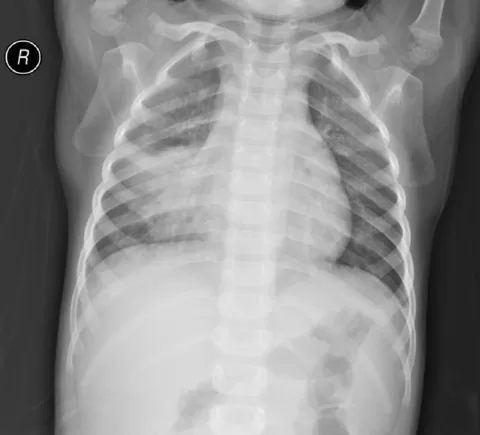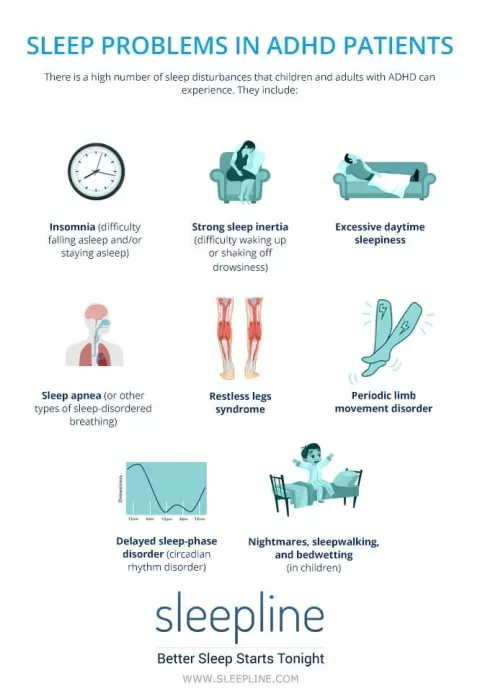Postnatal depression in men is a critical yet often overlooked aspect of men’s mental health that deserves attention. While the conversation around postnatal, or postpartum, depression has primarily centered on mothers, recent studies indicate that fathers can also suffer from this condition. Symptoms of postnatal depression in men can mirror those experienced by women, including low energy, feelings of emptiness, and irritability. Elevated stress and new caregiving responsibilities can contribute significantly to male postnatal depression, highlighting the need for awareness and validation of fathers’ mental health. Understanding that one in ten fathers faces this challenge is essential for fostering a supportive environment that encourages open discussions about parental depression.
Postpartum mental health issues are not exclusive to mothers, as recent findings reveal that new fathers are also vulnerable to experiencing significant emotional distress following the birth of a child. Male parental depression can manifest through various symptoms, such as feelings of inadequacy and avoidance of caregiving roles. As societal norms around masculinity often discourage men from discussing their emotions, the support networks available to them may remain underutilized. By normalizing conversations about men’s mental health during the transition to fatherhood, we can pave the way for better understanding and resources for those navigating the complexities of postpartum challenges. Acknowledging this issue is vital for promoting healthier family dynamics and ensuring that fathers receive the necessary help and support.
Understanding Male Postnatal Depression
Postnatal depression can be a challenging reality for many fathers. Although much awareness is centered on maternal mental health, it’s crucial to recognize that men, too, can experience this mental health condition. Male postnatal depression often arises within the first year after childbirth, paralleling many of the challenges that new mothers face. This is partly due to the hormonal changes that fathers experience, which can contribute to feelings of inadequacy and stress as they navigate their new role. Understanding these emotional shifts is vital in highlighting the fact that men’s mental health is equally important in the context of parenting.
Symptoms of male postnatal depression can often manifest differently than those seen in women. While mothers may openly discuss their feelings of sadness and anxiety, men might display irritability or withdrawal from social activities. This can lead to a cycle of isolation and unmanaged mental health issues, which can adversely affect their relationships with their partners and children. It’s essential to create an environment where fathers feel comfortable discussing their feelings, facilitating a better understanding and support system to combat male postnatal depression.
Recognizing Symptoms and Risk Factors
Identifying the symptoms of postnatal depression in men is the first step toward recovery. Common indicators include feelings of low self-esteem, withdrawal from social interactions, and fatigue. Unlike women, who may openly express their emotional struggles, men might display anger or irritability. It’s crucial for partners and family members to recognize these signs and encourage open conversations about mental health. Acknowledging that these symptoms are a legitimate aspect of their parenting journey can foster a more supportive environment.
Risk factors for male postnatal depression are similar to those found in women, with some unique considerations. For instance, fathers who have a history of depression or are facing relationship difficulties are at heightened risk. Additionally, factors like unemployment or lack of social support can exacerbate feelings of insecurity regarding their parenting abilities. Understanding these risk factors can help in developing targeted strategies to support fathers better, ensuring that their mental health is prioritized alongside their partners.
The Impact of Postnatal Depression on Families
The effects of postnatal depression in fathers extend beyond the individual experience, significantly impacting the family unit. Children of fathers with untreated depression may exhibit behavioral and developmental issues, emphasizing the importance of proper identification and treatment. As fathers navigate this complex mental health challenge, their ability to engage positively with their children can suffer, which in turn affects familial bonds. Therefore, addressing male postnatal depression has far-reaching implications for the well-being of the entire family.
Moreover, the emotional and psychological distress stemming from male postnatal depression can create tension in partnerships. Partners may feel overwhelmed by their responsibilities or frustrated by their father’s withdrawal, leading to conflicts and further isolation for the father. A supportive environment that encourages open dialogue about mental health can mitigate these stresses, allowing families to share their feelings and work together toward recovery.
Seeking Support for Male Postnatal Depression
Encouraging fathers to seek help when experiencing postnatal depression is crucial. This can include mental health screenings or engaging with healthcare providers who understand the nuances of male postnatal depression. Support groups specifically for fathers are also invaluable, providing a safe space for sharing experiences and strategies for coping. This acknowledgment of their mental health journey not only benefits the individual but enhances the parenting experience.
It’s vital for communities to create awareness about the importance of mental health in new fathers. Providing workshops and resources focused on men’s mental health can empower fathers to talk about their feelings without stigma. Initiatives that promote discussions around parental depression can significantly change perceptions, leading to more fathers feeling encouraged to seek the help they need.
Navigating Hormonal Changes During Fatherhood
Just as mothers undergo significant hormonal shifts post-birth, fathers also experience changes that can influence their mental health. Studies indicate fluctuations in testosterone and cortisol levels can impact a father’s emotional state, leading to heightened anxiety or sadness. Recognizing these hormonal changes as legitimate contributors to postnatal depression in men is crucial for comprehensive mental health care and support.
Understanding the link between these physiological changes and emotional well-being can foster better communication between partners. When fathers are educated about the potential for hormonal shifts, they may be more inclined to seek help when feelings of despair arise. Addressing male postnatal depression with this knowledge can pave the way for healthy coping strategies and long-term mental health stability.
Building a Supportive Environment for New Fathers
Creating a supportive environment for new fathers is essential in addressing the challenges of male postnatal depression. Families and communities can play a pivotal role by fostering open conversations about mental health and encouraging fathers to actively participate in discussions about their feelings. This support can take many forms, from sharing resources to simply being present and listening.
Encouraging community engagement through programs focused on male mental health can also strengthen support networks. Initiatives that provide targeted help for new dads—like parenting classes and peer support groups—can help normalize conversations about postnatal depression. When fathers feel supported, they are more likely to share their experiences and seek help, ultimately leading to healthier family dynamics.
Preventive Measures for Postnatal Depression
Preventing postnatal depression in men begins with recognizing the risk factors early on. Education for expectant fathers about what to anticipate emotionally during the transition to parenthood is crucial. By preparing for potential mental health challenges, fathers can be better equipped to handle their emotions and seek help when necessary. The implementation of educational resources in prenatal care settings can catalyze this process.
Fostering healthy relationships between partners prior to the baby’s arrival can also serve as a protective factor. Strong communication skills, shared responsibilities, and mutual emotional support can significantly lessen the likelihood of developing postnatal depression in fathers. Consequently, proactive measures, open discussions about mental health, and community resources provide a strong foundation for navigating this significant life transition.
The Role of Partners in Addressing Male Postnatal Depression
Partners play a crucial role in recognizing and supporting their significant others during challenging times. Understanding and validating the emotional struggles fathers face can foster a sense of connection and provide reassurance. Partners should be encouraged to have frank discussions about their feelings, promoting an open environment where each parent can support each other’s mental health needs.
Additionally, partners should be aware of the signs and symptoms of postnatal depression, as their awareness can lead to early detection. Encouraging fathers to speak about their experiences and emotions can help them feel less isolated. This cooperative approach not only strengthens the partnership but also promotes a healthier family environment where both parents’ mental health is prioritized.
Educating Healthcare Professionals about Male Postnatal Depression
Healthcare professionals must be informed about the realities of male postnatal depression to provide effective support. Training programs that emphasize the importance of screening fathers for mental health conditions can help ensure that these issues are recognized and addressed early. By normalizing discussions about men’s mental health during routine checks, healthcare providers can break down stigmas and encourage more fathers to seek help.
Moreover, integrating comprehensive mental health education into maternity care can further enhance support for fathers facing postnatal depression. When healthcare providers approach this topic with sensitivity and understanding, they can create a more supportive atmosphere for new dads, ultimately improving outcomes for the entire family.
Frequently Asked Questions
Can men get postnatal depression?
Yes, men can experience postnatal depression. Often referred to as male postnatal depression, this condition affects fathers and is characterized by feelings of low mood, fatigue, and withdrawal. About one in ten fathers may face this issue shortly after their child’s birth.
What are the symptoms of postnatal depression in men?
Symptoms of postnatal depression in men can include low self-confidence regarding parenting, irritability, withdrawal from social interactions, and difficulties with sleep. Men might also show signs of anger or cynicism, and in some cases, substance abuse may occur.
What factors increase the risk of male postnatal depression?
Risk factors for male postnatal depression include having a history of depression, a partner with postnatal depression, lack of support, financial stress, and having a child with special needs. These factors can exacerbate the challenges fathers face after childbirth.
How can fathers identify symptoms of postnatal depression?
Fathers can recognize symptoms of postnatal depression by noting feelings of being trapped, avoidance of parenting tasks, and experiencing increased conflict with their partners. They should also watch for physical symptoms like headaches or stomach problems.
What should fathers do if they suspect they have postnatal depression?
Fathers suspecting postnatal depression should seek help from healthcare providers, utilize mental health screening tools, or join support groups specifically for fathers to openly discuss their feelings and experiences.
How does postnatal depression in men affect family dynamics?
Postnatal depression in men can negatively impact family dynamics, leading to behavioral and developmental issues in children. It’s essential for fathers to seek support not only for their mental health but also for the well-being of their families.
Is there stigma associated with male postnatal depression?
Yes, there is significant stigma around male postnatal depression. Many men may feel societal pressure to be strong and may not recognize their own symptoms. This can prevent them from seeking the mental health support they need.
How common is male postnatal depression?
Approximately one in ten fathers experience male postnatal depression. This statistic highlights the need for increased awareness and understanding of men’s mental health in the context of parenting.
Are there specific treatments for postnatal depression in men?
Treatment for postnatal depression in men often includes counseling, cognitive-behavioral therapy, and support groups. In some cases, medication may also be prescribed, depending on the individual’s needs.
What resources are available for men experiencing postnatal depression?
Resources for men experiencing postnatal depression include mental health screening tools, healthcare professionals, support groups for fathers, and online forums where they can share experiences and seek advice.
| Key Points | Details |
|---|---|
| Can Men Experience Postnatal Depression? | Yes, men can experience postnatal depression, though it is less commonly discussed. |
| Symptoms in Men | Symptoms may include low mood, irritability, fatigue, and avoidance of caregiving tasks. |
| Risk Factors | High-risk factors include a history of depression, lack of support, and financial struggles. |
| Misunderstanding of Postnatal Depression in Men | Society often overlooks men’s mental health post-birth, leading to underdiagnosis. |
| The Impact of Undiagnosed Depression | Undiagnosed postnatal depression in fathers can negatively affect the whole family. |
| Need for Screening | Fathers should be routinely screened for postnatal depression similar to mothers. |
| Seeking Help | Encouragement to seek support through mental health services and support groups. |
Summary
Postnatal depression in men is a significant yet often overlooked issue that can have serious consequences for both fathers and their families. It is crucial to recognize that fathers can face similar emotional challenges as mothers after the birth of a child. By raising awareness and promoting mental health screenings for fathers, we can better support them in navigating the complexities of parenthood and ensure healthier family dynamics.
The content provided on this blog (e.g., symptom descriptions, health tips, or general advice) is for informational purposes only and is not a substitute for professional medical advice, diagnosis, or treatment. Always seek the guidance of your physician or other qualified healthcare provider with any questions you may have regarding a medical condition. Never disregard professional medical advice or delay seeking it because of something you have read on this website. If you believe you may have a medical emergency, call your doctor or emergency services immediately. Reliance on any information provided by this blog is solely at your own risk.






